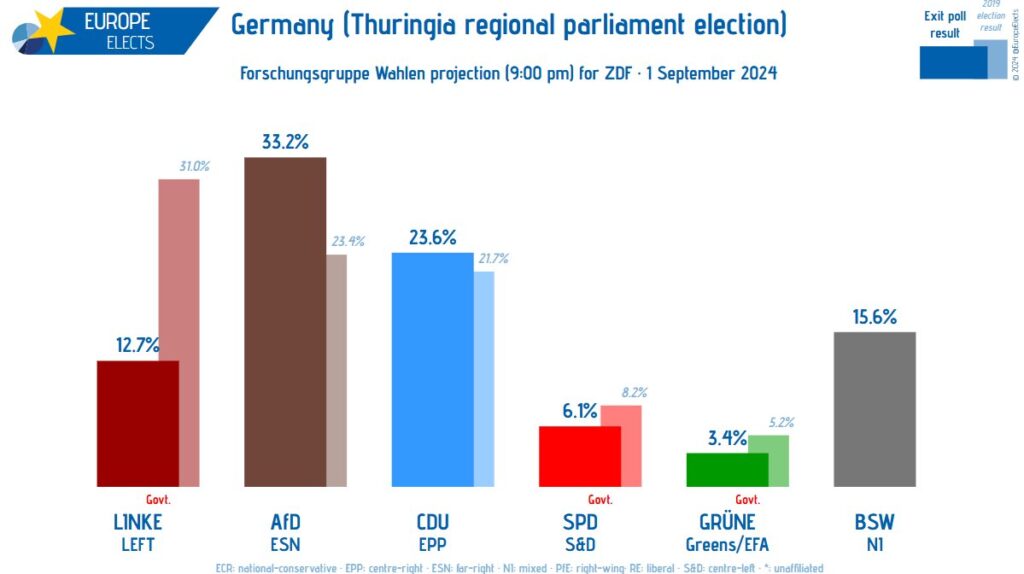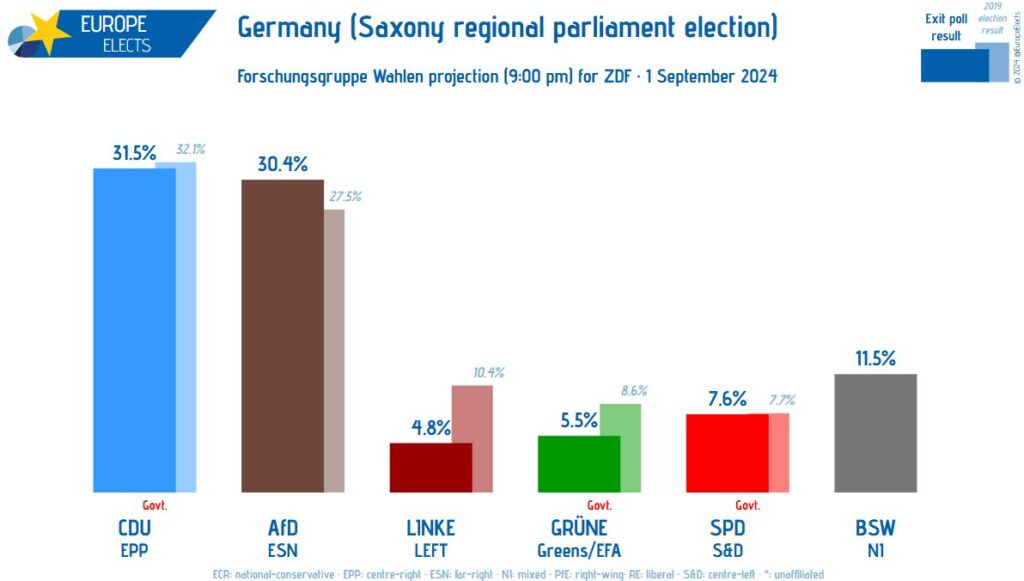Elections in the German regions of Thuringia and Saxony are set to produce exactly the results that the country’s mainstream politicians were dreading.
In Thuringia, projections show a big win for the far-Right AfD on about a third of the vote. That’s well ahead of the centre-right Christian Democrats (CDU) in second place.

A second populist party, Sahra Wagenknecht’s BSW, has taken about one in six votes. The parties which make up the national government — the centre-left Social Democrats (SPD), the liberal Free Democrats (FDP) and the Greens — have suffered dismal results. All three lost support, and it looks as if the Greens and FDP will fall below the 5% threshold required for seats.
The projected result in next door Saxony was only slightly better. The AfD was already strong there, and is one point behind the Christian Democrats for first place. The Social Democrats limped in well behind the BSW. Meanwhile, the Greens are hovering around the 5% threshold and the Free Democrats have been obliterated.

In both regions, forming coalition governments is going to be a trial. In Saxony, the existing CDU-SPD-Green coalition might just survive — unless, that is, the Greens fall below the threshold and thus lose all their seats.
It’s even worse in Thuringia, where none of the conventional coalitions are mathematically possible. The taboo against having the AfD in office will be maintained despite its clear first place. If a Right-wing populist such as Marine Le Pen won’t work with the AfD, then don’t expect Germany’s establishment politicians to drop their cordon sanitaire.
But that being the case, Thuringia’s surviving mainstream parties, the CDU and SPD, need to do a deal with Wagenknecht’s party. It tells you something about the state of Germany’s Left-wing politics that this will be easier for the Christian Democrats to swallow than the SPD.
As in France, a political system designed for the postwar era is cracking under the strain of 21st-century populism. At the very least, the results in both Thuringia and Saxony stand as a stunning rebuke to the Berlin establishment.
Perhaps the easiest way for the elites to deal with this is to pretend it doesn’t matter. After all, these are two regions that were pretty marginal even in the old East Germany. They’re no more typical of a united Germany than Alabama and Arkansas are of the United States of America.
Except that what we’ve seen today isn’t contrary to nationwide political trends, but rather an exaggerated version of them. Take a look at the latest national polling:

The AfD is in second rather than first place, but is still providing a major headache. The governing parties are doing really badly — though only the FDP faces elimination in next year’s elections to the Bundestag. Meanwhile, the BSW is poised for a stunning national breakthrough and is vying with the Greens for fourth place. The Christian Democrats are way out in front, but finding coalition partners — while also freezing out the AfD — is going to be harder than ever before.
The German elite can make fun of their most “backward” regions, but the fact is that German politics is taking a distinctly Thuringian turn.











Join the discussion
Join like minded readers that support our journalism by becoming a paid subscriber
To join the discussion in the comments, become a paid subscriber.
Join like minded readers that support our journalism, read unlimited articles and enjoy other subscriber-only benefits.
Subscribe